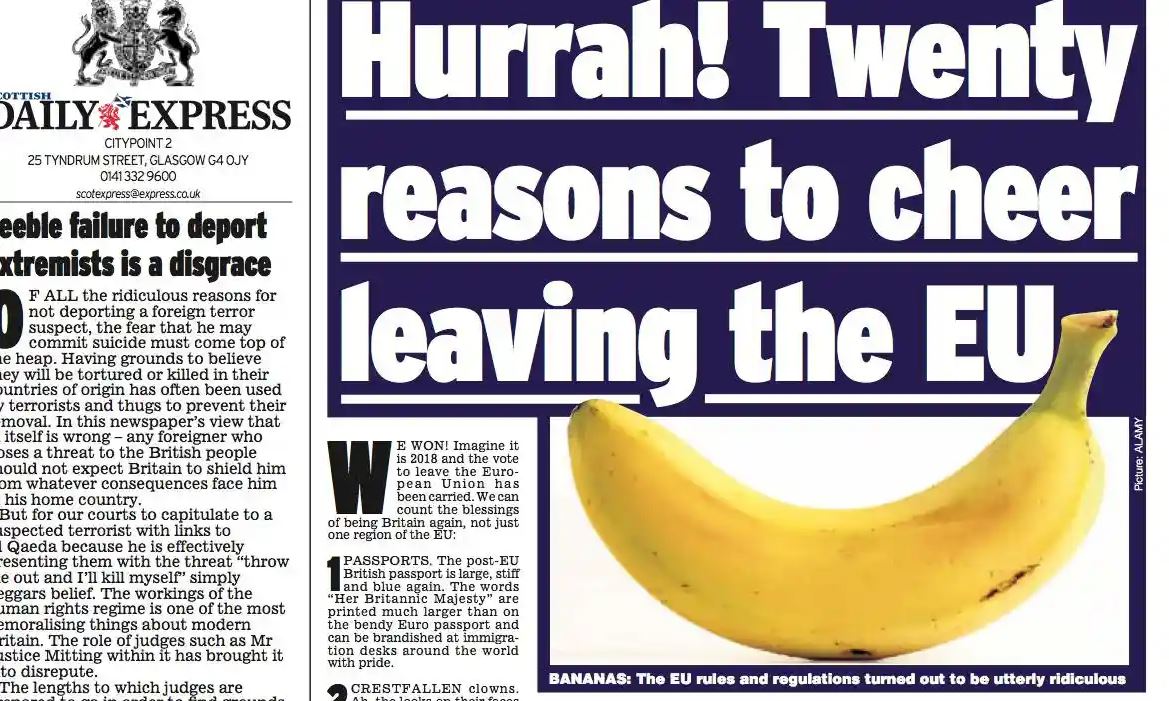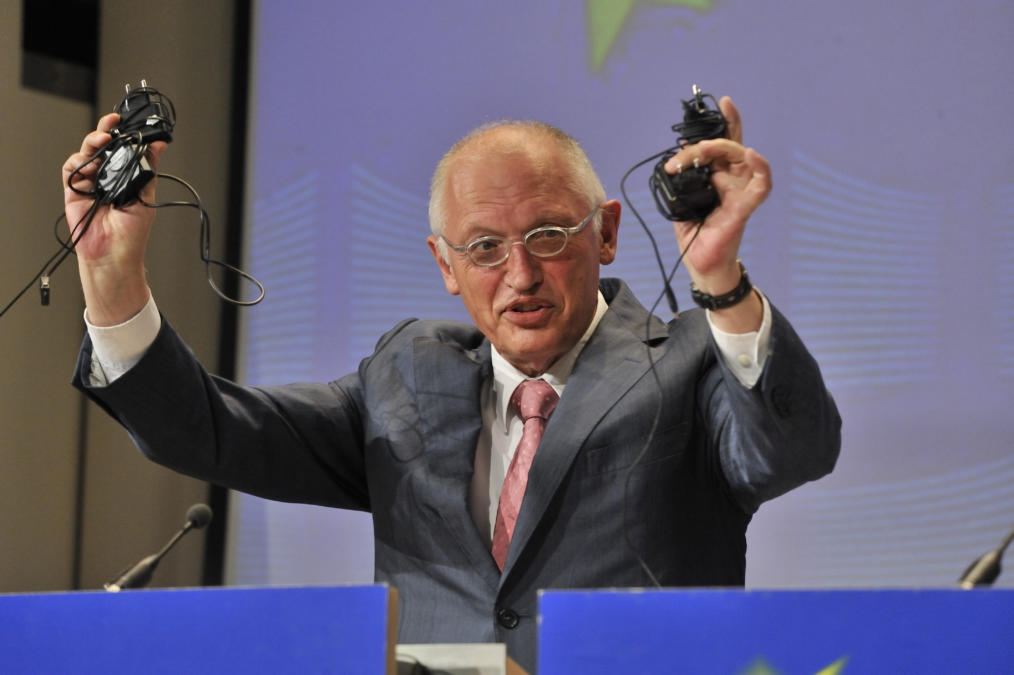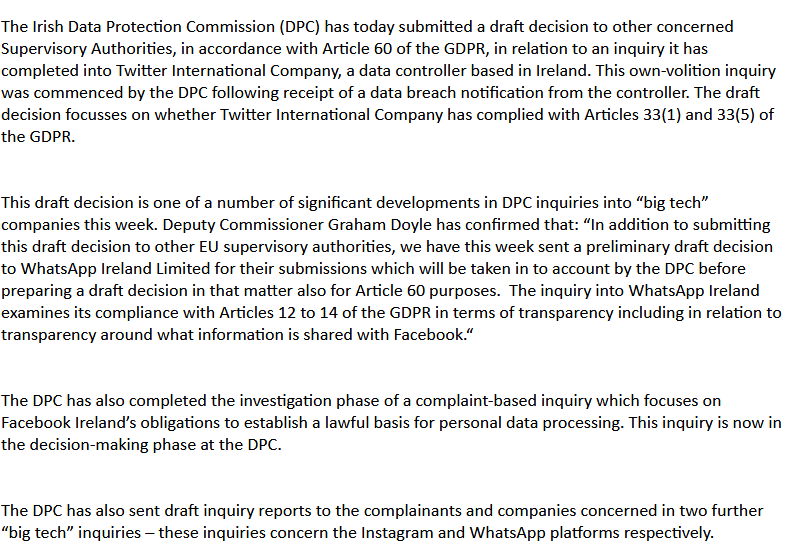
26 years ago, The Sun splashed this headline, which turned into one of the arch-myth of Brexiteers - the idea that 'bonkers bureaucrats' in Brussels banned bendy bananas. [Thread] 

The idea that unfettered Eurocrats just would enact crazy, arbitrary laws took hold in the British imagination. It became one of these narratives that are so powerful that they are hard to refute with facts. 
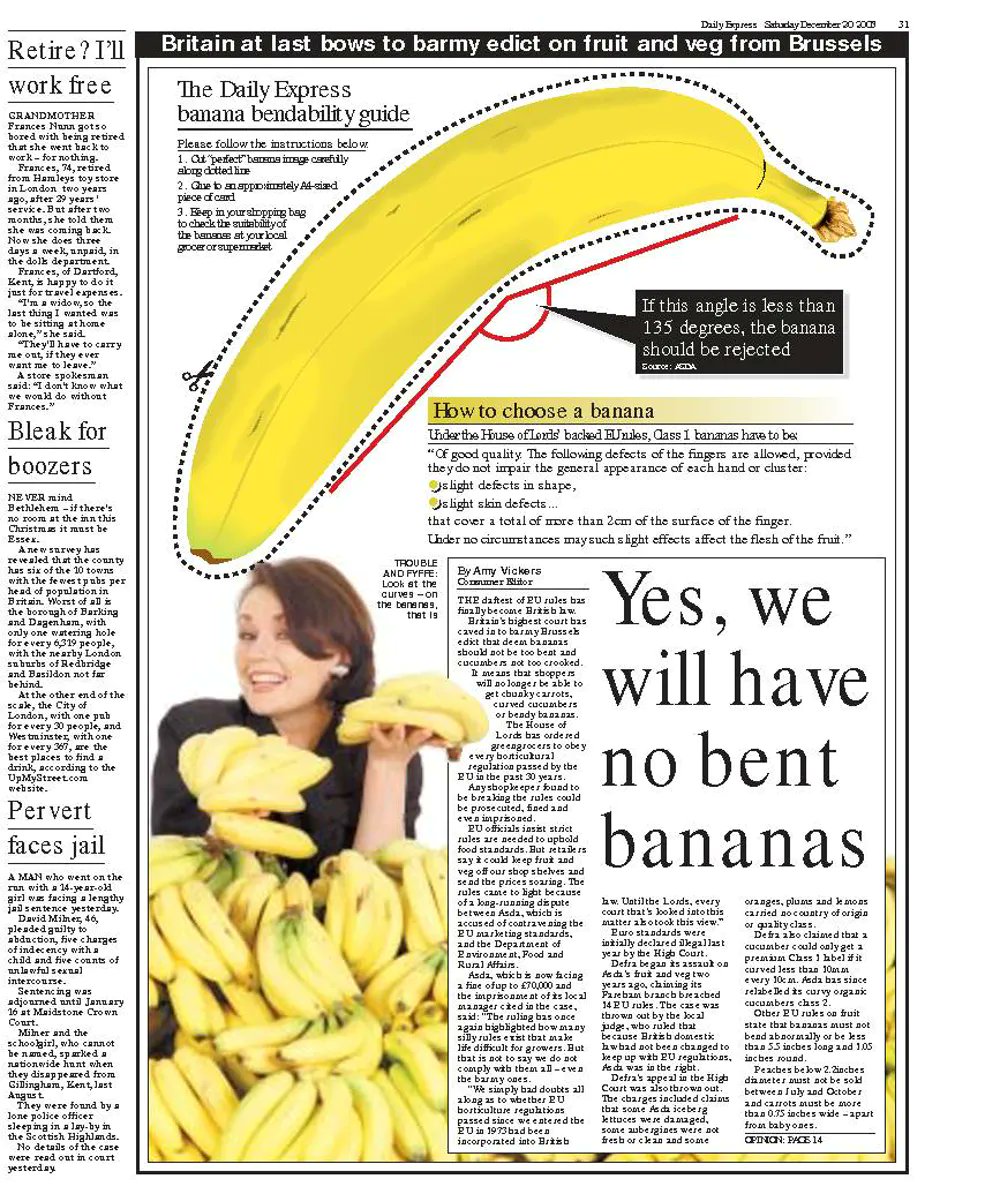
Nobody became as good at telling these types of stories as Boris Johnson. He used the 'bendy banana' tale to justify his vote for Leave in the Brexit referendum.
https://twitter.com/rowenamason/status/730314534053924864
Of course, the press and the EU Commission have been trying their hands at rebuttals for the past decades. The Commission even launched a 'Euromyth' website with more than 400 de-bunking pieces. To no avail. 
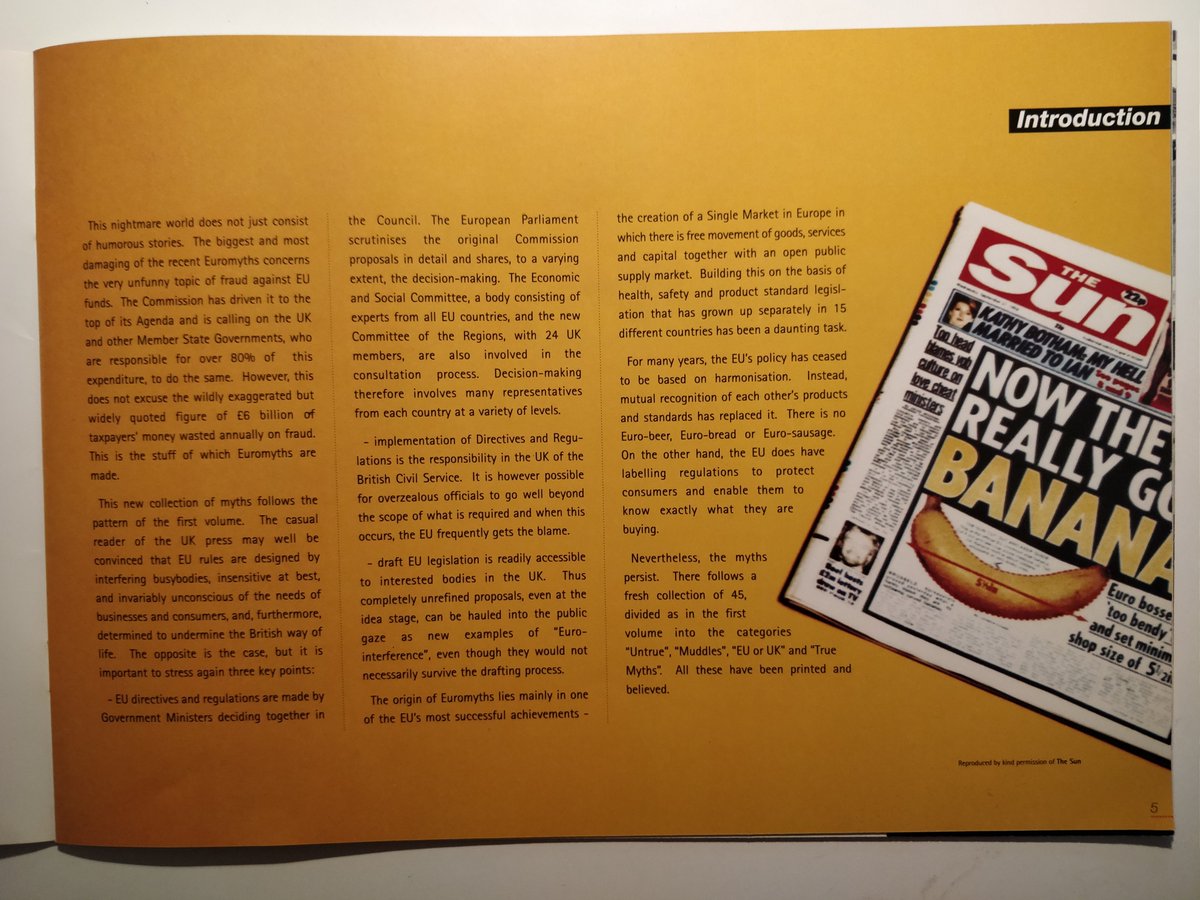
To be fair - yes, the EU really has a Regulation on bananas, which bans bananas with 'abnormal curvature of the fingers' from sale in certain trade categories. But the really interesting question is - how did this law come about? 
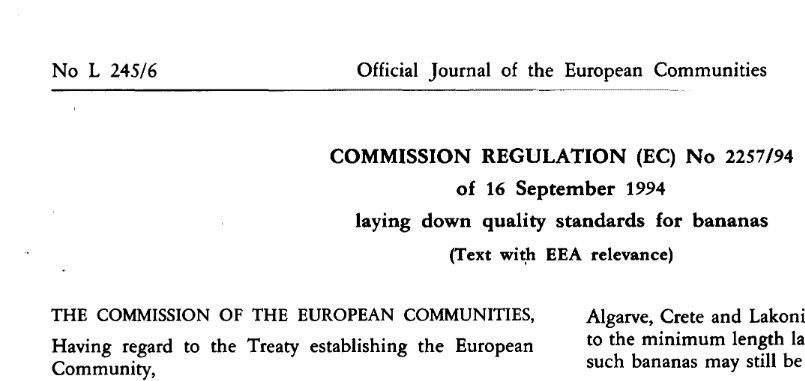
Through FOI requests with the Commission I was able to unearth the documents on the negotiations that led to the banana law.
tl;dr - it was lobbyists and member states rather than 'bonkers bureaucrats' that banned bendy bananas.
tl;dr - it was lobbyists and member states rather than 'bonkers bureaucrats' that banned bendy bananas.
An obscure lobby group called European Community Banana Trade Association alone wrote more than half a dozen letters that survive in the Commission archives.
It was lobbyists asking for the law, and lobbyists helped write it.
It was lobbyists asking for the law, and lobbyists helped write it.
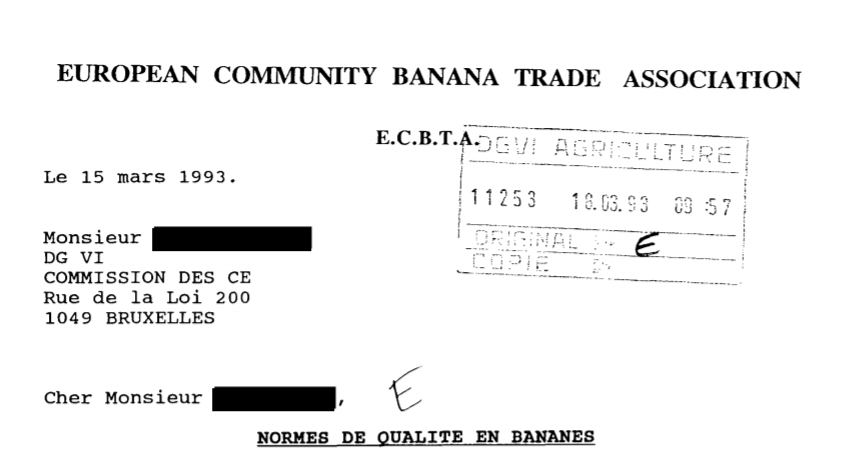
Moreover, member states such as France pushed for this law. The French sent a copy of their 1975 banana law to Brussels, which is eerily similar in wording to the 1994 EU law. 
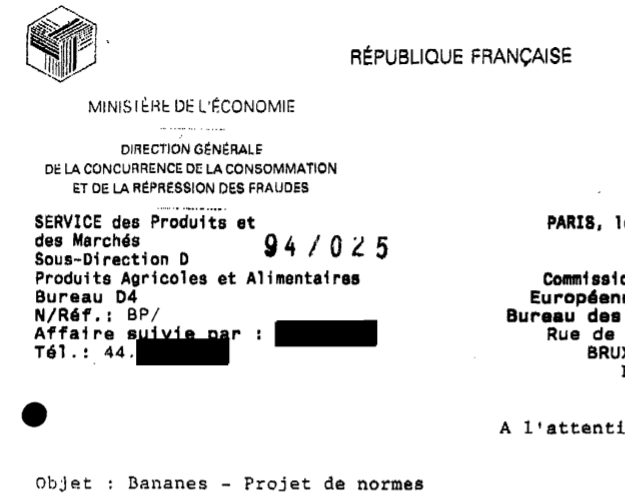
The only country strongly opposed was the UK (in very Sir Humphrey-ish prose). But whatever the British objections were, they were only brought behind closed doors. Council positions then as now are a closely guarded secret. 
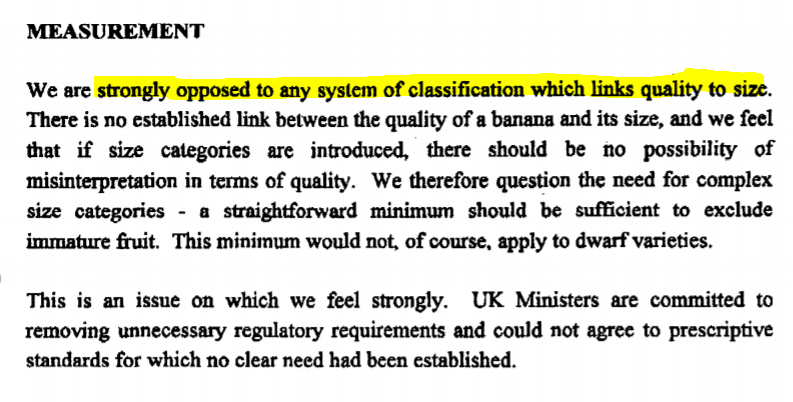
In the end, nobody reported on *how* or *why* this law came about. Instead, British journalists kept doing one story after another about the next 'crazy' EU law, about how 'Brussels' would ban prawn-flavoured crisps and mince pie. And guess who wrote some of these stories? 
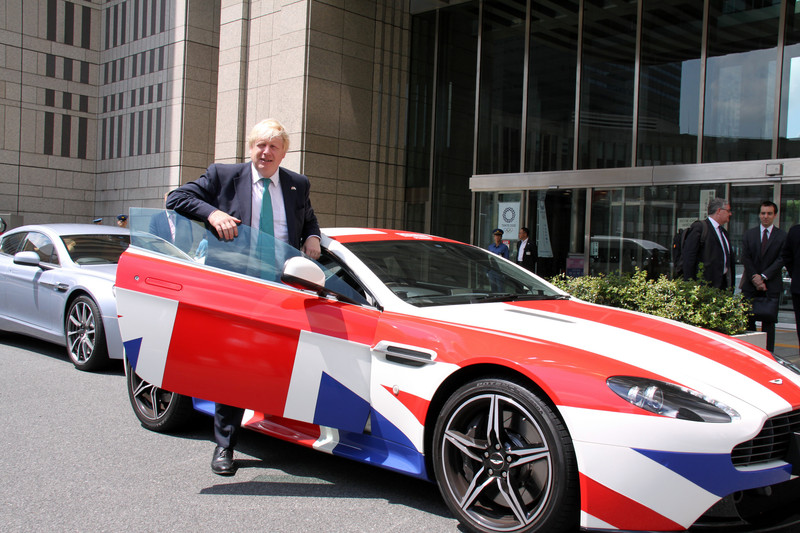
Anyway, prolly 26 years to late, but here is my definitive take on how Brussels worked out the kinks of banana law.
euobserver.com/news/149607
euobserver.com/news/149607
For what it's worth, here is the full set of documents on the bendy bananas law: asktheeu.org/en/request/sta…
HT to @Falnes for giving some awesome feedback on an early draft.
HT to @Falnes for giving some awesome feedback on an early draft.
• • •
Missing some Tweet in this thread? You can try to
force a refresh
